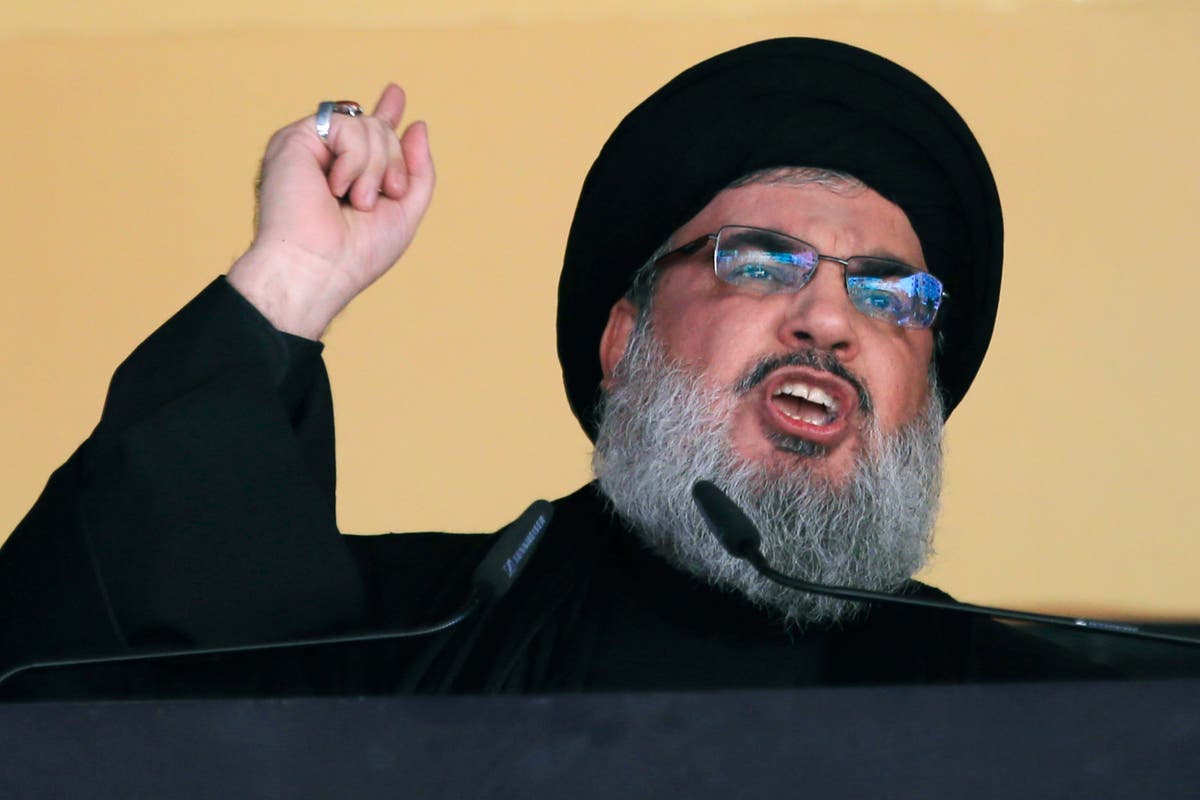For months, the staff at Rafik Hariri university hospital had been preparing for the worst. Nurses ran drills in parking garages, practising transferring patients from the wards to the bombproof concrete structures. A building was left empty on the hospital campus so that if mass bombing occurred, medics could bring their families with them and not worry about their safety.
On Friday night, the drills seemed to pay off. Dozens of bombs were dropped on Dahiya, the southern suburbs of Beirut, sending residents running to the safest place they could think of – the nearby hospital.
People ran to the gates of Rafik Hariri hospital, asking to stay in the car park until the bombing ceased. Staff could not let them in because they had to keep the way clear for incoming wounded and were expecting hundreds of casualties from the airstrikes, which killed the head of Hezbollah, Hassan Nasrallah, and levelled a city block. The residents settled for waiting outside the hospital gates, staying as close to the structure as possible until the Israeli bombing of Dahiya slowed in the morning.
Once the displaced left, the wounded started coming in. Hospitals in Dahiya transferred patients to Rafik Hariri and other surrounding medical centres after the ministry of health ordered the evacuation of all hospitals in the southern suburbs.

Contrary to expectations, the wounded from Friday’s strike on Dahiya came at a trickle, the health ministry reporting 11 dead and 108 wounded in its latest update. The deep craters where six buildings used to stand, a result of the powerful bunker bombs Israel had dropped, made search and rescue difficult.
Lebanon’s first responders, who had grown used to sifting through rubble over the last 12 months of fighting, found themselves combing through destruction the likes of which they had never seen before. Two days after the strike, the death toll continued to steadily climb.
The hospital system had successfully passed its latest crisis, nurses and doctors exhausted after two weeks of non-stop mass casualty events. No one, however, was optimistic, bracing themselves for further escalation, including the possibility of an Israeli ground invasion.
“We’re facing a big psychological challenge. We’re are scared that the basic supplies will be cut off. I’m scared that if the situation continues, we will be cut off from everything,” Shoshana Mazraani, the emergency room director of Marjayoun public hospital in south Lebanon, said.

Those fears were multiplied when Israel continued to escalate its aerial campaign across wide swathes of the country. On Saturday in Shebaa, a town on the Lebanon-Israel border, residents’ phones began to ring. An Israeli official on the line told them to evacuate their homes immediately, as they soon would be struck.
“They told us which road to take; they even called the police. Everyone was frightened and fled. Just 10 minutes after the calls started, they started to bomb the town,” Mohammed Saab, the mayor of the Shebaa, said over the phone. He added that three homes were destroyed by the Israeli strikes.
Rumours of people receiving similar calls began to circulate on social media, with people warning each other to stay away from certain areas lest they be bombed. In one case, rumours swirled that residents of a building housing displaced people in the town of Baakline in the mountains of south-east Lebanon had evacuated after receiving a call. One of the building’s residents later said that it was just hearsay and that no one had been called by the Israelis.

On the streets of Beirut, Lebanese soldiers stood at intersections mostly devoid of cars. An Israeli drone patrolled overhead, the strengthening and receding of its buzz periodically sending residents to their balconies, where they craned their heads to spot any smoke that would signal a strike.
The period of official mourning for Nasrallah’s death did not start until Monday. For some people in the capital, there was a reluctance to believe he had gone.
“They said that they killed Seyed Hassan Nasrallah, which until now 90% of the people don’t believe. This is what the media wants us to hear, this is my thinking,” Amir, a 24-year-old shop owner in Karkoun al-Druze, a mixed-sect neighbourhood in Beirut, said. “It will just take a little bit of time for him to get back. If he does come back and he’s alive, things will get way worse [for Israel].”
About a mile away, as Amir was speaking, media reported that rescue workers had found Nasrallah’s body, lifting his shrouded corpse with a crane.

Amir’s neighbour agreed with him that the late leader of Hezbollah, who during his three-decade command of the group achieved mythical status among supporters and enemies alike, was not dead. The group’s announcement of his death was just a ploy to fool the Israelis, who to Amir and his neighbour were verging on hubris by even thinking of a ground invasion.
“It’s impossible for them to set a foot in Lebanon. If we’re facing 10 of them, there will be hundred of us,” Amir said, saying that despite the fact that he was Sunni, he supported what he saw as the Shia organisation’s defence of Lebanon against Israel.
Even if some Lebanese might face the prospect of an Israeli invasion with bravado, there were doubts as to whether the Lebanese state was prepared for it.
“They said they had been preparing for a year, but look what happened last Friday. No one was expecting it,” Yusuf, who owned a shop next to Amir, said. “I’m afraid it will be like 2006 all over again. It was very difficult then: food stocks ran out, supplies were low.”

In downtown Beirut, the lack of preparation was evident. Families displaced from Dahiya crowded together under the few trees that dotted a park, shielding themselves from the afternoon sun.
The prospect of more fighting, regardless of whether it was missiles fired at or coming from Israel, was a disturbing one for some of those who had lost their homes.
Murshid Yusuf’s wife had been killed and his home destroyed in an Israeli airstrike in south Lebanon. “I want the situation to get better. I want everyone to be in their homes sitting with their family,” he said. “I want people to be able to go out and be happy. That’s it.”

 By The Guardian (World News) | Created at 2024-09-30 04:15:16 | Updated at 2024-09-30 11:41:52
7 hours ago
By The Guardian (World News) | Created at 2024-09-30 04:15:16 | Updated at 2024-09-30 11:41:52
7 hours ago



